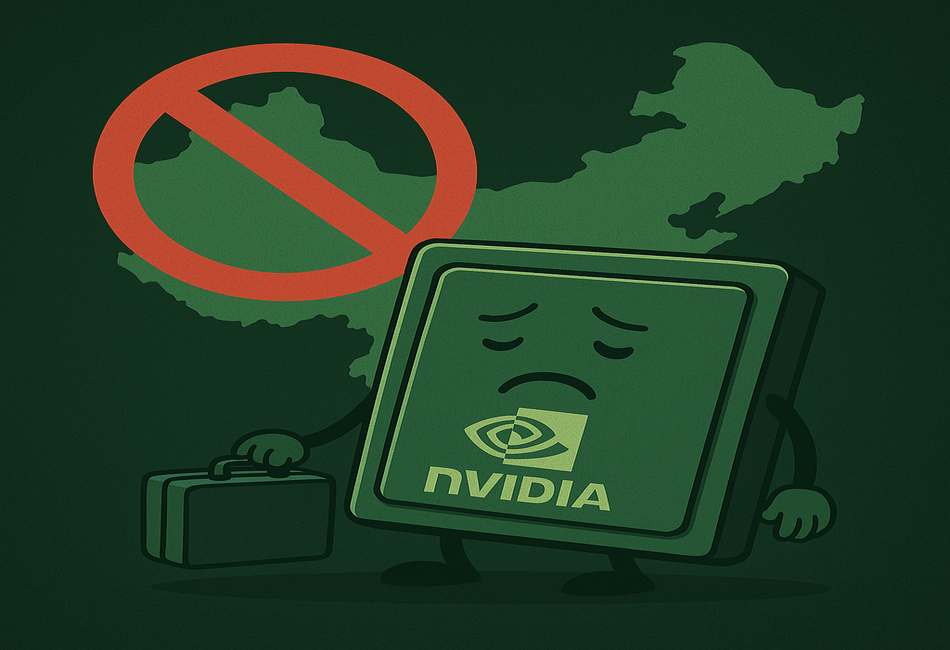When even a tech titan like Jensen Huang suddenly removes “China” from his financial forecasts, it’s not just a business retreat, but a geopolitical admission of guilt: Team Green no longer sees a reliable sales market in the Middle Kingdom – even though China was one of NVIDIA’s most lucrative markets for years. But Washington’s export cudgel is having an effect. And it is hitting hard.

From hope to resignation: NVIDIA capitulates to US policy
“Our forecasts no longer include China in the future.” This dry statement by Jensen Huang to Reuters may sound sober, but it is a strategic tremor. Just a few years ago, China was a goldmine for NVIDIA. Now it is becoming an unpredictable risk. The reason? The increasingly strict US export controls, which are now banning even trimmed AI chips such as the H20 from the Chinese market. What used to mean predictability is now a geopolitical roulette. The consequence: NVIDIA is not cutting China because it wants to, but because it has to. A sales region the size of a continent is simply being “booked out”. Billions in losses? Written off. Prospects? Frozen. You could call it diplomatic capitulation – with an announcement.
USA as a brake on its own dominance?
Jensen Huang is not content to remain quietly frustrated. He openly criticizes the effectiveness of the US strategy: export controls, he argues, are failing to achieve their goal. Instead of curbing China’s AI ambitions, they motivate self-sufficiency – with potentially fatal long-term consequences for US supremacy in the AI sector. After all, what China has already achieved with models such as DeepSeek R1 without state-of-the-art chips could lead to a technological breakthrough with access to high-end hardware. In short: the West is pulling the plug – and helping the East to build its own power plants.
Market economy meets geopolitics
While NVIDIA charges horrendous hourly rates for AI performance in the USA, GPU services are available for a mere six dollars an hour in China. That doesn’t just sound like unfair competition, it is – from the US government’s point of view. Consequently, the next setback came promptly at the Geneva summit: Secretary of Commerce Howard Lutnick announced categorically that no more high-end chips would go to China – period. Relaxation? Not a chance.
Strategic options? Not a chance.
This is a dilemma for NVIDIA: on the one hand, the company does not want to decouple itself from the world’s second largest economy, while on the other hand, US policy dictates what can be exported. The balancing act between innovation leadership and geopolitical loyalty is becoming an economic burden. And at some point, the question arises as to whether other markets – such as India or the Middle East – will become the next regulatory pawn.
Green light set to red
What remains is the bitter realization: NVIDIA is not a victim of the market, but of geopolitics. While the company once scaled freely in gaming GPUs, it now has its hands tied in the AI sector. The Chinese are continuing to develop – without NVIDIA if necessary. And Jensen Huang has to learn that not every chip that can be built can be sold.
Source: Reuter

